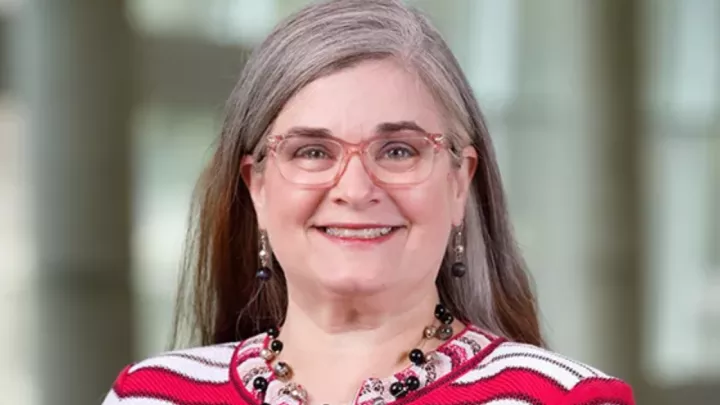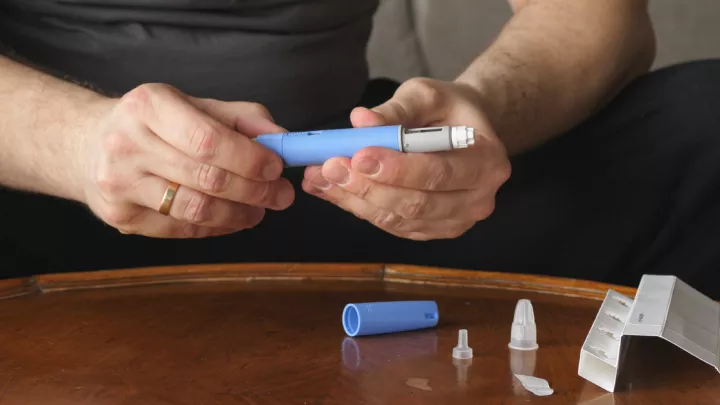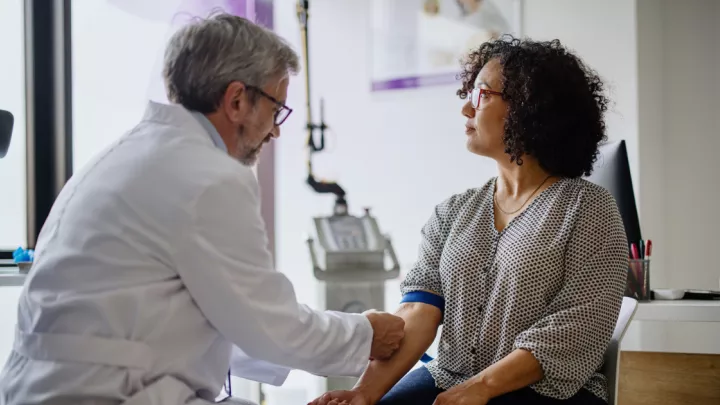Weight loss surgery and fertility: One patient's story

From battling hormone issues and obesity to undergoing life-changing weight-loss surgery that helped her conceive, the path to motherhood has been an extraordinary journey for Melissa Lederer, RN.
Lederer, who is a Nebraska Medicine Heart and Vascular nurse, discovered she had polycystic ovary syndrome, or PCOS, in her adolescence. The hormonal disorder can cause symptoms like irregular periods, weight gain and excess hair growth.
“I was nine years old when I started exhibiting symptoms, and then I developed morbid obesity and was never able to lose the weight,” she says. “At age 13, I was told that I would never have children of my own and my PCOS could not be managed – it was just the hand that I was dealt.”
Determined to improve her condition, Lederer researched PCOS and tried various medications and diets throughout her teens and into her 20s, but her efforts proved unsuccessful.
The weight loss journey
In her late 20s, Lederer began a medical weight-loss program that showed promising results. However, she soon realized the very low-calorie diet was unsustainable.
Seeking a more permanent solution, Lederer underwent weight-loss surgery at age 30. Bariatric surgeon Corrigan McBride, MD, performed her stomach intestinal pylorus-sparing, or SIPS, surgery.
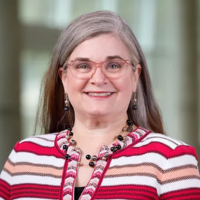
“Melissa is a nurse by background and training, and she came into bariatric surgery very educated about the pros and the cons and all of her health issues,” says Dr. McBride, who herself underwent bariatric surgery that helped her conceive. “We selected the operation that was right for her, and from the beginning, one of her goals was improvement in her reproductive health because she wanted to have children.”
The surgery was successful, and Lederer shed 150 pounds in one year. While she did not immediately attempt to conceive, her menstrual cycle quickly regulated and ovulation returned, giving her hope for the future.
Adjusting to a new life
Though the weight loss was transformative, Lederer had to adapt to a new relationship with food. With the bariatric team’s guidance, she gradually found a healthier balance.
“They were truly partners in helping me address the mental health challenges that came up through the process,” Lederer says. “I couldn’t imagine a better team to help me through it.”
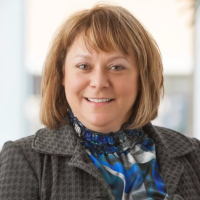
Throughout her weight-loss journey, Lederer continued to see OB-GYN Karen Carlson, MD, who says Lederer had great insight into her weight-related fertility issues.
“She had her mind set on losing the weight and achieving pregnancy once that was accomplished, to maximize her fertility and pregnancy outcome for both the baby and herself,” she says.
Post-surgery, Lederer took time to improve her overall health and, two to three years later, discontinued birth control and became pregnant naturally.
However, she and her husband experienced the devastating loss of their baby during the later stages of pregnancy. They took a break to heal, recover from the trauma and investigate Lederer’s husband’s neuromuscular disorder.
Pregnancy and complications
When they felt ready, Lederer and her husband were delighted to conceive naturally once again. However, Lederer says she remained fearful due to her previous loss.
“I was hopeful and over the moon, but constantly on edge about whether I would be able to hold onto the pregnancy,” Lederer says. “I worked through a lot of anxieties with Dr. Carlson, talking through things like ‘What if I gain too much weight? What if I don’t gain enough?’”
Throughout her pregnancy, Lederer faced numerous challenges, such as acquiring a C. difficile infection, having COVID-19 and feeling sick in general. However, at month eight, Lederer’s baby fell off the growth charts, and she began seeing the maternal-fetal health team at the Olson Center for Women’s Health.
“I was literally in the Olson Center every day for weeks on end, being continuously monitored,” she says. “At my 35th week, they told me, ‘We think it’s time to get him out.’”
In addition to her baby’s growth restriction, Lederer had developed severe preeclampsia. She required an emergency C-section to ensure the well-being of both her and her baby.
A baby boy
On Dec. 12, 2023, Jack Duncan Lederer came into the world. His birth occurred exactly eight years after Lederer initially consulted with Dr. McBride about bariatric surgery.
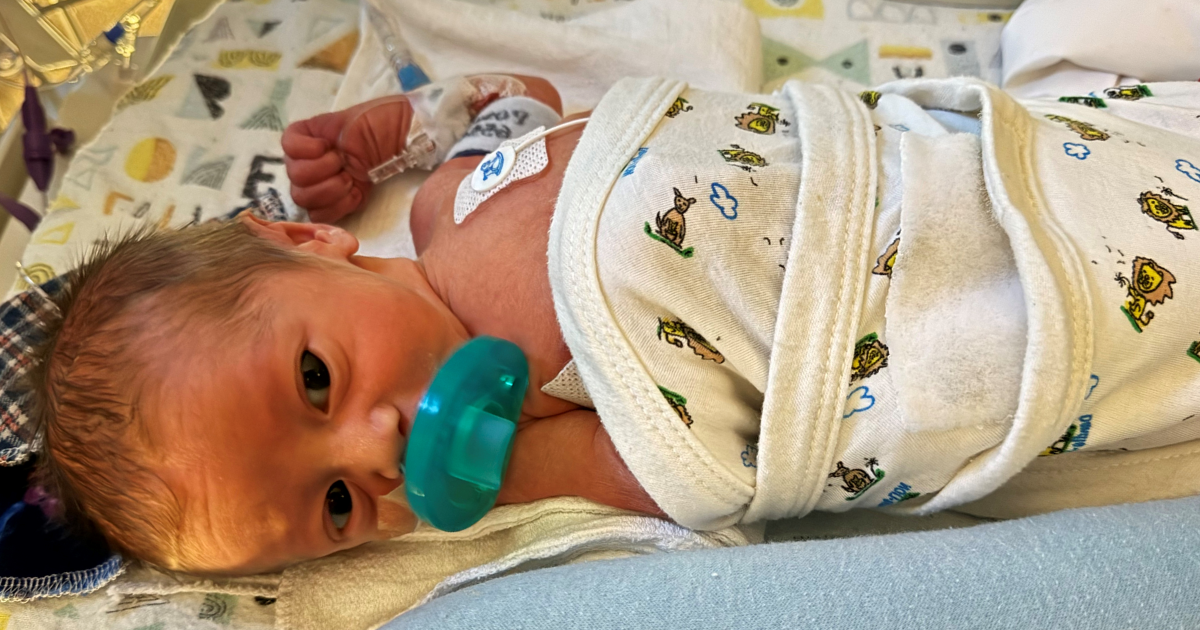
While Jack’s preterm birth required a stay in the NICU, he quickly grew and thrived there. However, Lederer began having extreme abdominal pain upon her discharge from the hospital. She returned immediately and discovered that she had a bowel obstruction – a complication that stemmed from her weight-loss surgery, pregnancy and C-section.
“Dr. McBride took me back to surgery, and it felt like a full-circle moment,” Lederer says. “She said, ‘I’m going to fix you now so you can be a mama to your baby boy.’ And I felt like she gave me the tools and health to be able to conceive and deliver him, and then I needed her again immediately so I could continue on my journey.”
The poignancy was not lost on Dr. McBride, who has helped many patients improve their fertility through weight-loss surgery.
“I love seeing the success of all my patients,” Dr. McBride says. “But it is wonderful and makes us all happy to see someone who desperately wants a child successfully get pregnant and have a beautiful, healthy baby.”
A joyful homecoming
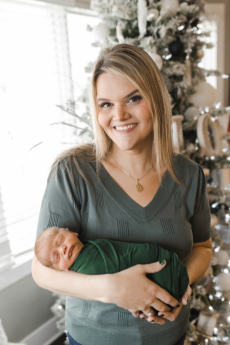
With Lederer recovering well and Jack discharged from the NICU, the family returned home. Thriving and doubling his birth weight in just six weeks, Jack – whose middle name originates from the Scottish word for “warrior” – has brought great joy to Lederer and her husband.
“He’s just perfect and healthy, and we couldn’t ask for more than that,” Lederer says. “We feel so grateful and blessed to have him.”
Reflecting on her long path to motherhood, Lederer says each step required an investment in and commitment to her health. She recognizes the key roles her OB-GYN, bariatric and maternal-fetal medicine teams played in supporting her along the way.
“I’ve just been so grateful and glad to have the expertise of all the teams because none of this has been straightforward to me,” she says. “To not have been alone in these journeys has been incredible.”
Watch Melissa thank her care team in her own words:


